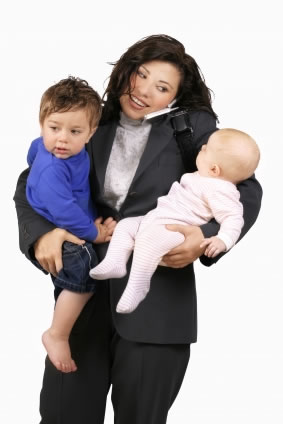Published: November 8, 2010
“The results of this study show that fearless behavior in children can be identified and is related to neurological and genetic predisposition. This type of behavior has less correlation – at least in infancy – with standards of educational processes or parenting practice,” says Dr. Inbal Kivenson-Baron, who carried out the study.
Preschool-aged children who demonstrate fearless behavior also reveal less empathy and more aggression towards their peers. This has been shown in a new study that was carried out at the University of Haifa’s Faculty of Education. “The results of this study show that fearless behavior in children can be identified and is related to neurological and genetic predisposition. This type of behavior has less correlation – at least in infancy – with standards of educational processes or parenting practice,” says Dr. Inbal Kivenson-Baron, who carried out the study.
[continue reading…]
Published: September 29, 2010
So I have 4 sons (gasp)…. and we’re the same mom and dad bringing up the babies right? But wait what happened when son #3 arrived? My smug observations of contemporaries whose kids refused to go to bed on time, threw tantrums and just refused to behave in company.. could it be they were not bad parents after all? Because now I was living in their world. Routines? Schmootines… nothing worked honey. Now I was the mom that people “tut tutted” at in supermarkets… I was the “ineffectual parent”.
Well now parents of children who cannot concentrate, are prone to fidget and act impulsively may for the first time be able to escape criticism of their child-rearing skills, after scientists announced that attention deficit hyperactivity disorder (ADHD) is a genetic condition. link to read more
Source: The Independent
Published: September 22, 2010

Image: Stockxpert
aising small children without stress, good health and a sense of fairness in the marriage – this is the experience of spouses in the 1970s who shared the responsibility of staying at home with the children while working part-time. Sociologist Margunn Bjørnholt has interviewed these couples 30 years later.
[continue reading…]
Published: August 21, 2010
 The hormone oxytocin has come under intensive study in light of emerging evidence that its release contributes to the social bonding that occurs between lovers, friends, and colleagues. Oxytocin also plays an important role in birth and maternal behavior, but until now, research had never addressed the involvement of oxytocin in the transition to fatherhood.
The hormone oxytocin has come under intensive study in light of emerging evidence that its release contributes to the social bonding that occurs between lovers, friends, and colleagues. Oxytocin also plays an important role in birth and maternal behavior, but until now, research had never addressed the involvement of oxytocin in the transition to fatherhood.
A fascinating new paper by Gordon and colleagues reports the first longitudinal data on oxytocin levels during the initiation of parenting in humans. They evaluated 160 first-time parents (80 couples) twice after the birth of their first child, at 6 weeks and 6 months, by measuring each parents’ oxytocin levels and monitoring and coding their parenting behavior. [continue reading…]


